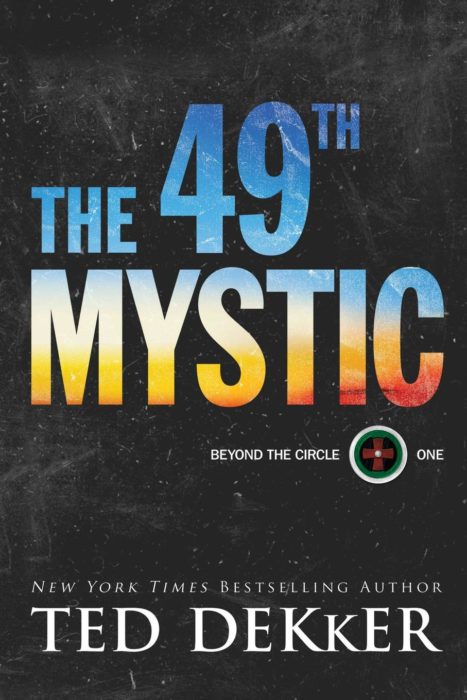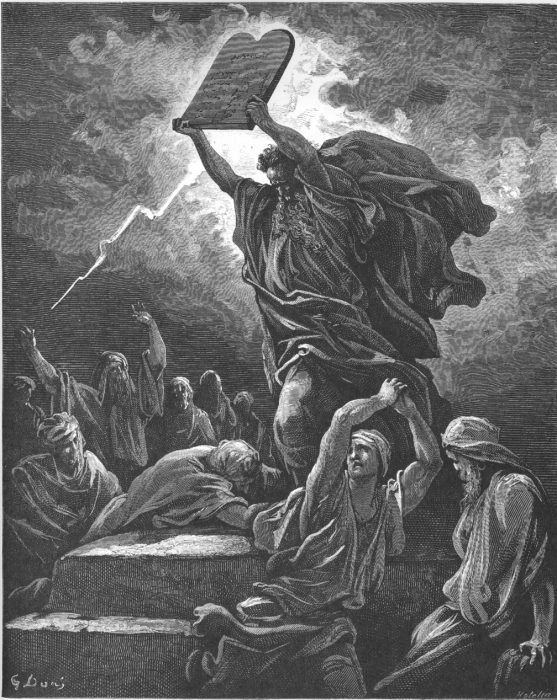Four Replies to ‘Scary’ Questions that Led Searchers to Speculative Faith
We’re in between Wednesday writers at SpecFaith. Earlier this year, Mark Carver quietly stepped out to soft-reboot, in part because of pandemic. Earlier this month, Shannon McDermott also stepped back, at least for now, and likely for similar reasons.
So for today, you’ve got me. I thought I’d make a “filler episode” by responding to search-engine questions that led readers here.
Here are my micro-answers—at least, replying to the web queries I understood.
 ‘What does God think of scary stories?’
‘What does God think of scary stories?’
It depends on the story.
Does the story draw you closer to Christ, the embodiment and origin of all truth, beauty, and goodness?
Or does that story help push you away from Christ, perhaps into a quiet suspicion that darkness always wins and there is no hope?
Scary stories are found even in Scripture. The Fall itself (Genesis 3) is terrifying when you think of it. Before you even finish Genesis, you’ve also seen a global cataclysmic Flood, a man’s wife transmogrified into a salt pillar, and incestuous drunk-rape. Generations later, Judges 19 is a self-contained horror tale. All these true accounts can scare us, rightly, about the terrible consequences of rejecting our Creator.
 ‘Christian spells?’
‘Christian spells?’
These are not a great plan.
As we explore in this week’s podcast episode, God warns his people (then as now) against occultism. We must not try to act like “gods” in God’s world, pridefully worshiping idols and using “magical” means to control our own destinies.
That includes anti-Christian, occult practices: the usual stuff we imagine, like tarot cards, charms, crystals, and New Age whatnot.
Yet it also includes “Christian white magic“—the sorts of spiritual zone-defense Christians attempt, even as means to ward off paganism.
‘ Ted Dekker controversy?’
Ted Dekker controversy?’
Hmm. This could mean many things.
Dekker is a fascinating figure, and I’ve enjoyed much of his fiction. My favorite of his novels is actually Blink. His Thr3e likely ranks second.
We positively reviewed his novel The 49th Mystic at Lorehaven. Yet we did include more details in the Discern section:
Soft-gnostic themes and even heterodox preaching, not just shown subtly in the story but blatantly told in an introductory author’s note and concluding detailed Scripture interpretation; plus frequent attacks on portrayals of organized religion, and a Holy Spirit–like figure prefers feminine pronouns . . .
Perhaps this is the “controversy” the web-searcher was seeking: Dekker’s growing appreciation of “mysticism,” not just as some optional path for some monks somewhere, but as an essential choice to get some kind of higher, more-enlightened spiritual life.
Mike Duran also wrote more about Dekker in 2017’s “The Dangers of Christian Mysticism.”
Apart from the mysticism concerns, Dekker seems to struggle with The Church Back Home. (That’s my catch-all term for “that religious group, faction, denomination, or local gathering that gave you a lot of trouble in your childhood or career or professional ministry.”) I understand these struggles. But when someone tries to turn them into a leadership platform, and urge people to forsake the local church—and to challenge biblical gospel teaching—that goes too far. Young Christians who struggle with the pain of legalism need to hear more.
This doesn’t mean, “Don’t read Ted Dekker’s books.” Our reviews’ Discern section is about notification, not warning! Yet always, always compare any fantastical Christian-made fiction with the greater and truer narrative of the Bible.
‘Consequences of Deut. 18:10-12?’
Here’s another perfect setup for this week’s podcast episode, Should Christians Enjoy Fantasy with Fictional Magic? Part 1.
Podcast: Play in new window | Download
From the Scripture text, Deuteronomy 18:10–12:
There shall not be found among you anyone who burns his son or his daughter as an offering, anyone who practices divination or tells fortunes or interprets omens, or a sorcerer or a charmer or a medium or a necromancer or one who inquires of the dead, for whoever does these things is an abomination to the LORD. And because of these abominations the LORD your God is driving them out before you.
From the show notes:
Scripture warns against real occult practices that result from idolatry.
- For them: All these are false and blasphemous ways to seek God’s future.
- Divination: attempting to foretell the future. Fortune-telling: the same.
- Interpreting omens, sorcery, charming, summoning the dead: the same.
- If you want to know futures, you want to control reality on your own terms.
- The chief sin here seems to be a single sin: divination, fortune-telling, control.
- This is idolatry: you’re trying to be like God, stealing his authority from him.
- Even if we don’t do that stuff, we struggle with idolatry. (Cf. last session.)
- Especially in hard times, we want to know the future. We want to have power.
Notice what God doesn’t say in these passages (but do Christians say this?)
- God does not address the issue of anything else labeled “magic.”
- He does not answer if these pagan strategies actually work.
- He does not talk about whether whether they summon Satan or demons.
- Here, at least, God is not interested in these topics.
- He only gives one motive for people: their holiness in worship for his sake.
Return next week, when I just might share three-or-so more of these, with some quick responses and resources.
How would you answer any of these questions?








































It’s kinda unfortunate that there’s not much room for the A E S T H E T I C type of mysticism in Protestantism, especially if bells and smells of high church style is too suspicious.
On the “low” church end of the scale, it’s either a complete dearth of aesthetics like Quakers or Anabaptists or soccer mom denim, and maybe whispered campfire stories about Tammy Faye’s eyeshadow.
Kids these days. The Megachurchian folks worked so hard to get rid of all those dull, archaic “smells and bells,” what with the removal of all that could be called Religion from the real world, and then what do the kids go and do? Run about lamenting that all the churches are plain walls and TV screens without incense and fine wooden carvings. It’s like a Body just can’t please anyone. 😉
Loved the column. I write speculative Christian fiction myself and have revisited the idea of “magic” in such writing on more than a few occasions. In a nutshell, here’s my take on it.
All the injunctions in scripture against what some might call magic are actually pretty clearly directed toward one thing—men trying to gain knowledge of the future through means other than God, the Creator. You’re exactly right; all these practices mentioned in Deuteronomy are essentially the same thing—man trying to go around God to gain knowledge of the future so that he can act without needing God as part of the equation. It is a way of trying to become God ourselves. That seems to be the one, single, pervasive, all-consuming passion of those who engage in these practices—likely because that was the one all-consuming passion of Lucifer/Satan. If we want to know information about the future, we need to get it from God. He will give us as much or as little as He wants us to have. Essentially it comes down to a fairly simple point—if we can find out about the future by circumventing God, then there would be no need to trust Him to take care of us, no need for faith. To promote such practices is Satan’s way of urging us to believe we don’t need God—that we can make choices and decisions without asking Him or getting His input. Beyond the clear and fundamental wrongness of this, it is also very important to remember that Satan hates us and seeks our destruction, so any information we gathered in such ways could never be trusted anyway.
In the bigger sense of “magic”, however, a lot of it is a gray area. Personally, I don’t think the fundamental issue is (or has ever been) the magic itself, but the source of that magic. There are many accounts in scripture of people learning of future events before they happened—but they knowledge came from God through a revelation, a vision, a special word, etc. We could probably classify miracles as magic. Having the ability to perform deeds that defy the physical laws of nature amounts to what we would consider magic. Wouldn’t turning water into wine qualify as “magic” by that definition? Healing a human being of a deadly disease such as leprosy by speaking a word? Giving hearing or sight to a deaf or blind man by a simple touch? Turning a tiny bit of food into a feast for thousands? Commanding the forces of nature such as calming a raging storm at sea? Cursing a tree and causing it to die as a result? Raising the dead back to life? And these are just New Testament examples; the Old Testament is full of such events (parting the Red Sea, the widow’s oil, and many more). If any of these happened in a novel that never mentioned God or Christian faith, we would classify them as magic. The crucial difference in these events and what some might call “black magic” is the source of the power that makes them possible. God made man to have dominion over the earth—to rule it, command it, use it to accomplish things. Who knows what abilities Adam had that were lost in the fall?
We have been taught that “magic” is an evil thing because we define it as having its roots and its source in evil, in Satan. But God is infinitely more powerful than this fallen angel, and has repeatedly demonstrated that through acts performed by human beings who serve Him. This is true magic—accessing the unlimited power of the Creator of the universe to cause change in a fallen creation. When I write, I have no qualms at all about using magic as an integral part of my story. I don’t think the power, the ability to perform “magical” feats, has ever been the problem, regardless of what we have been told. The problem is, and has always been, seeking that power from some source other than God, the Creator.
Very well said!!!
Great discussion of this. I especially liked the bullet points section at the end.
As an author who writes Christian Fantasy and “light” science fiction, I try to consider this as I write. I can’t say I’ve always done it correctly, but I try. A few of the themes I’ve played with in a couple of my stories are prophecy and fate. What does it mean to have some kind of “Seer” see the future? Are they accurate? Do we have free will?
I think, as you stated, we have to be careful not to show this quest for “control” to be something that pulls a reader away from God. I’ve decided for the sake of my writing that even someone who is “gifted” with seeing/prophesying things may get it wrong, or may not see the whole/clear picture. The characters who seem to have some kind of fate or destiny must still make choices within that. It’s a tricky business, trying to make sure I’m honoring God in these stories, but I do pray over my work and study the scriptures.
My friend, your identification of “magic” according to the Bible as basically nothing other than divination runs flat into the account of the gents who opposed Moses and certain NT statements verses sorcery which have no connection to divination. It also runs into the magi, who did in fact use divination, but in a way that honors God. So that the definition of “magic” that I’ve offered in the past, which is “seeking supernatural power apart from God” holds water, but your definition, basically divination, doesn’t even take a whole paragraph to disprove.
In fact, even the Bible text which you quoted includes non-divination sorcery. The Pagans burned their sons and daughters in an effort to influence the future. It was not any form of divination–but rather “magic” in the way we would recognize as matching up with a world of fictional magic (though of the sinister sort). I.e. an exchange of a human life in return for power from the gods.
You are offering bad exegesis here, my friend. And this isn’t the first time I’ve disputed your definition of “magic.” I have answered you more than once on this topic and you have never answered my objections that I can recall–instead, you just keep repeating the incorrect definition of magic according to the Bible over and over again.
I wish you would stop offering this false definition. Seriously.
Which doesn’t mean you are wrong about everything. Of course Christians can write about magic, but we should be careful about it. I have said what I mean about “careful” in detail elsewhere. And of course you were also correct to say it doesn’t matter if the Pagan magic really worked or not–though it’s a bit silly to think it could never work, unless you are prepared to say Satan is fictional and/or powerless.
But anyway, dude, yeah, you are right to say Christians can in fact write magic. But you are incorrect about what you say the Bible says magic IS.
Please notice my comment and stop offering the same flawed interpretation of Scripture you’ve been using for years now. Thank you for listening.
You’re misreading me (and have before, alas). I’m not making a one-to-one correspondence between these occultic acts and only divination. Instead, I’m seeing the pattern in Scripture, that these acts are motivated by a desire of the heart: a desire of pride, to worship something other than God, to get some assurance about the future. This includes (but is not limited to) a desire to practice divination in order to guarantee the future apart from God’s will.
Good thing I haven’t only been making the “bad magic only = divination” point, or else I’d be pretty stumped here. 🙂
I think we agree on this. But I would add motive: seeking supernatural power apart from God, for prideful and idolatrous ends, to control God’s world and to be like God in ways he has forbidden. That’s a small change but with big consequences. And either way, this doesn’t automatically rule out even reading (in nonfiction or in fiction) accounts of characters who practice this kind of evil.
Yes: and in order to accomplish what end? I speak not of method, but motive: the motive of pride, arrogance, idolatry, worship of self.
You may be getting stuck on that one bullet point from the show notes. The notes, however, are from (1) a longer set of show notes, (2) a longer podcast episode, (3) a two-part series on the podcast, (4) a longer body of work that (I’m fairly sure) consistently emphasizes <em>motive over method</em>.
When you conclude in these discussions, “Stephen wrongly believes the only bad magic is divination,” I don’t think you’re correctly “exegeting” my work. Again, my intention (which I think is supported by my words) has been to challenge motive over method. At this point, I don’t care if you’re shaking that Magic 8 Ball because you sincerely believe it’s divination or you’re just trying to be “cute” about whether this toy can tell you something special. If the motive is idolatry and pride, the worship of self over God, and the valuing of “revelation” not from him, then this evil motive can infect anything. Example: In the recent podcast episode, Zack and I actually spoke at length about how this little idolatry can even infect family interactions and “prayers” for convenient parking spaces. It’s not just about active acts of divination.
Very minor point here, but once again I first try to speak as a fan, to fans, rather than jumping immediately into implications for creators. Not all fans are writers. But all writers are fans. And if we’re Christians then we speak first as receivers, not makers.
Thank ye sir. We agree here for sure. Also, I’m at best “agnostic” on whether certain occult practices could actually work. When they do, this may be exceptional circumstances. The witch of Endor seemed to be stunned that her spells actually “called” Samuel up from the dead. This seemed to be an exceptional circumstance, however, and Scripture is frustratingly vague about what exactly happened there! One of these days, we’ll get the behind-the-scenes info about the incident.
Brother, perhaps it would be fair to say that I didn’t correctly “exegete” what you’ve written on magic. That would be a reasonable assertion, except for you saying this:
“God does not address the issue of anything else labeled “magic.””
The “anything else” is a truth claim, one made in absolute terms, no possibility of you being wrong included by you adding a phrase like, “as far as I know.”
Your phrasing also claimed that you had already identified what God addresses by saying he “does not address anything else.”
This calls on the reader to look back and see what magic practices you already identified. And…all you specifically mentioned was “divination.”
Yes, you also mentioned pride, but in context of explaining WHAT IS WRONG with divination. You also mentioned trying to control the future, but that, in context, seemed HOW divination is applied. Again, the only magic practice you mentioned was divination, in various forms.
Which would mean you specifically claimed God did not address “anything else.” I.e. non-divination magic is not addressed.
But now you explain the real issue is pride and control. That magical practices done with a prideful heart and a desire to usurp God are the actual problem. Not just divination specifically.
Ok. But pride and a desire to control would protentially include every other type of magic ever conceived of by human beings, whether claiming-to-be-real or admittedly-imagined. EVERY use of magic is an attempt to control something.
So if that’s what you meant, then the statement: “God does not address the issue of anything else labeled ‘magic'” would seem to make no sense.
So what did you mean by saying that?